记: Spring Data Jpa @OneToMany 级联查询被动触发的问题
I have encountered a bug in using Spring Data Jpa. Specifically,when @OneToMany was used to maintain a one-to-many relationship, lazy loading was effective.However,it may passively trigger the cascading query without using the cascading property.
My development environment :
<parent>
<groupId>org.springframework.boot</groupId>
<artifactId>spring-boot-starter-parent</artifactId>
<version>2.1.11.RELEASE</version>
<relativePath/> <!-- lookup parent from repository -->
</parent>
**My User.class is as follows **
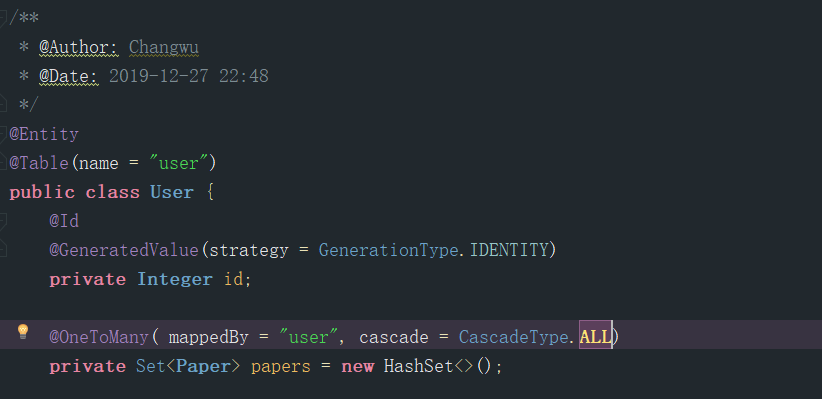
**My Paper.class is as follows **
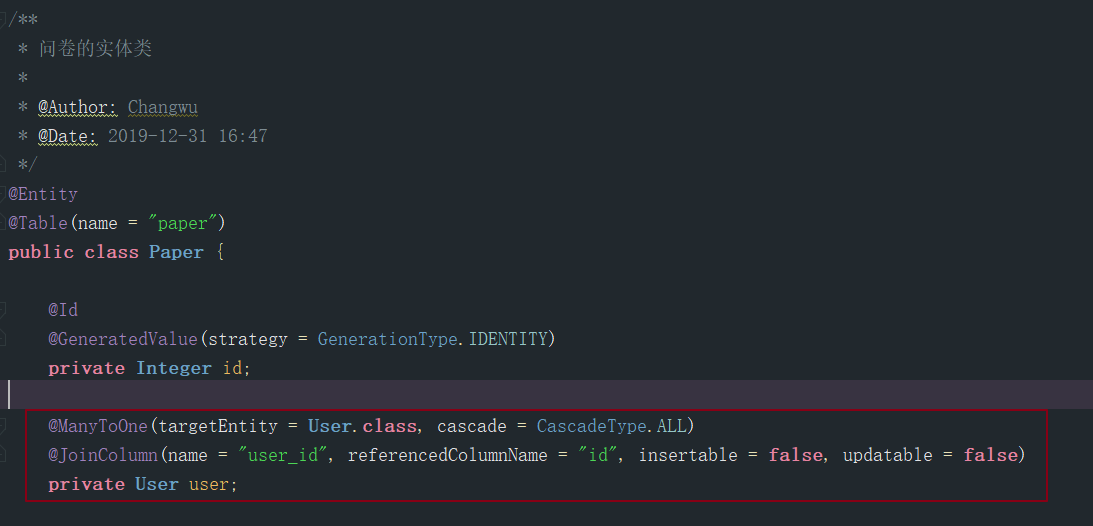
My PaperService.class is as follows
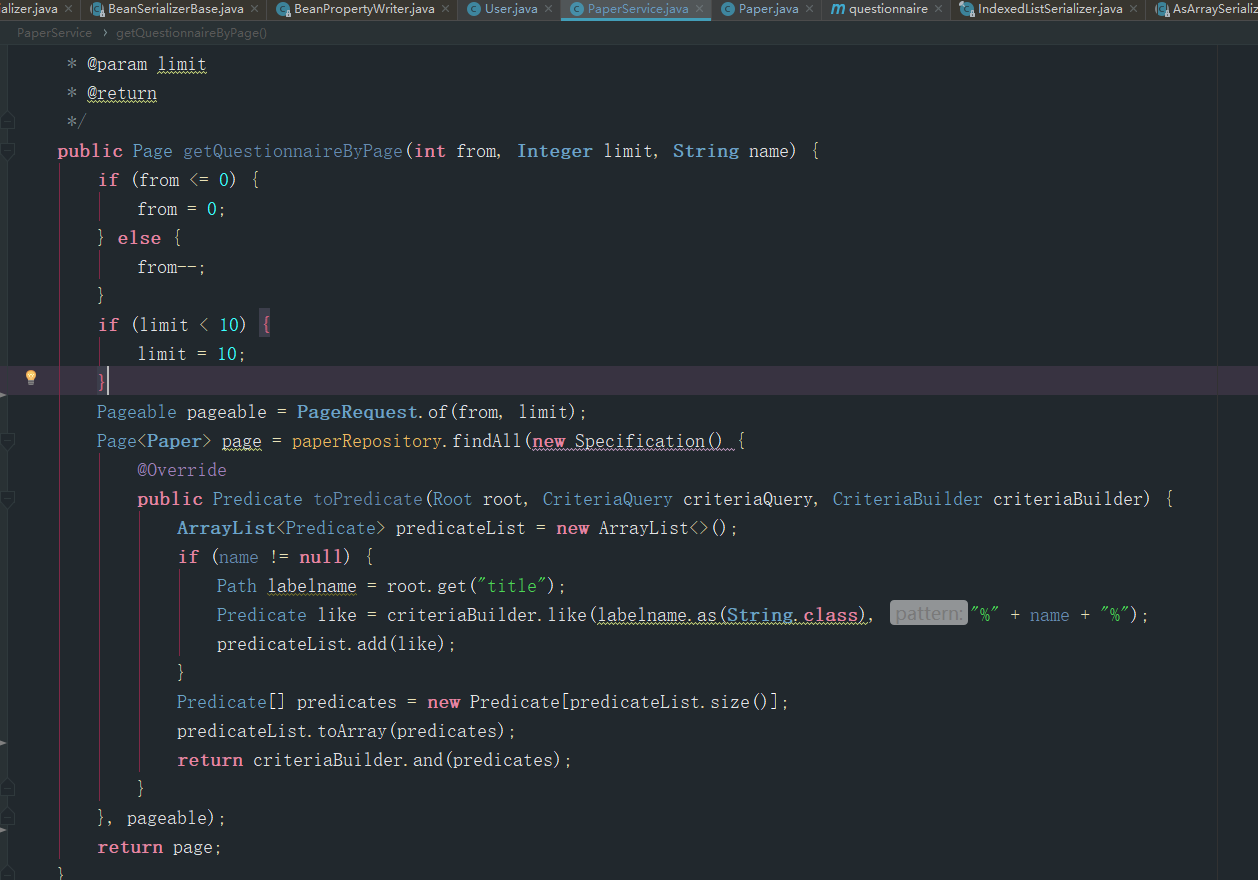
My UserController.class is as follows

I would like to use Jpa's @OneToMany default lazy loading mechanism when pagination queries was produced. Additionally, I don't need the collection of papers fields associated with the user.Nevertheless,I find that the papers attribute in the user is still populated with data in the returned results.
Therefore, I conducted the following debugging:**
send a request
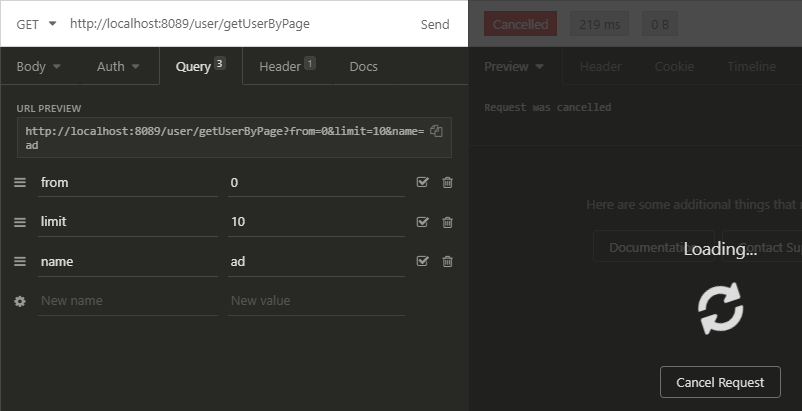
Observe the execution of the code:
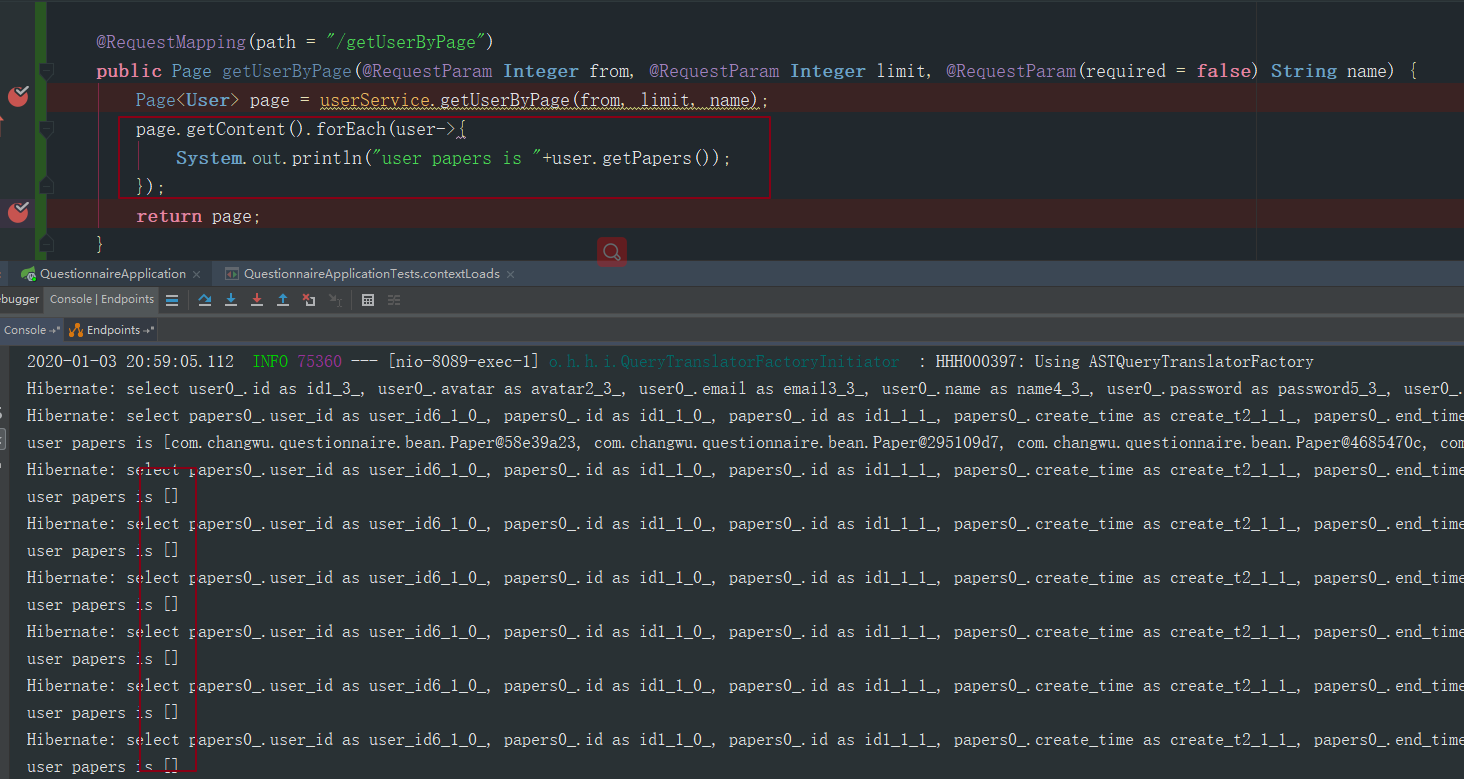
As you can see, although the lazy loading of Jpa was normal, I found the papers values that needed to be populated by cascading queries in the response data
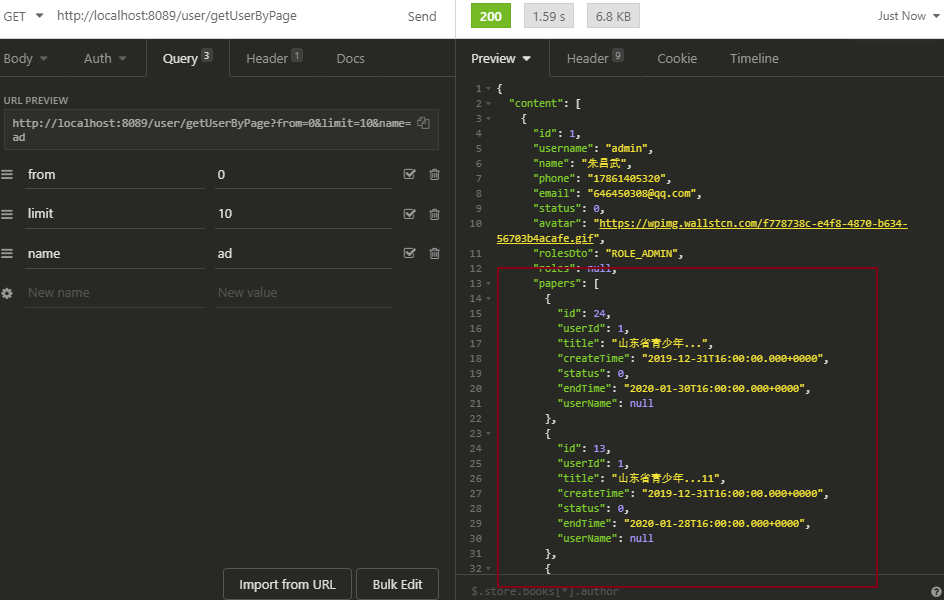
I guess the user's papers field in Page must have been used by the framework before the data was written back to the browser, so I started with the UserController and continued to trace the source code
Then I was found the following call: Jackson called paper's getter through reflection while serializing the data . in the package com. Fasterxml. Jackson. Databind. Ser.
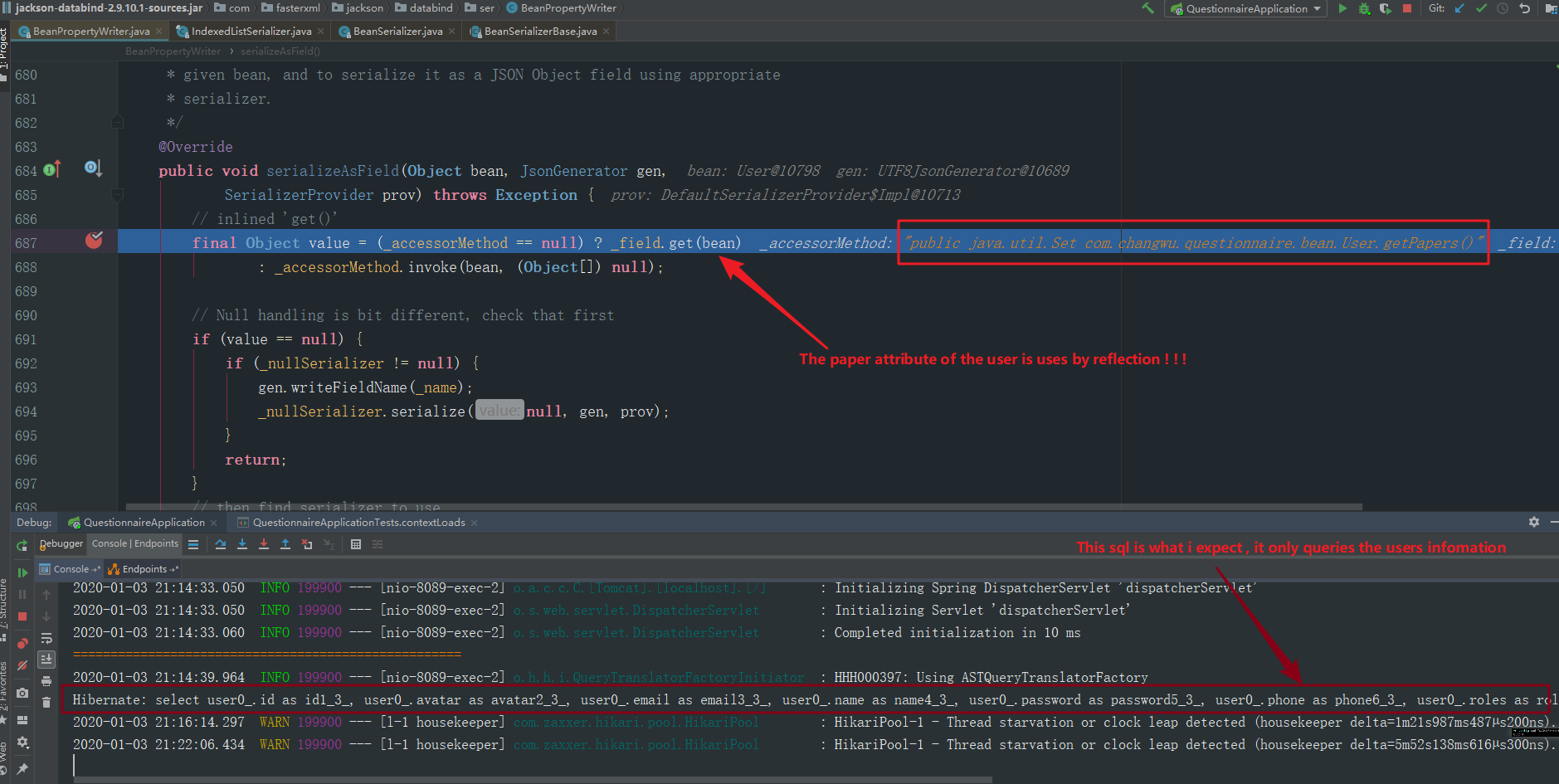
**That's why I get a response in which the paper property is populated with a value, right **
**Look at it this way, even though lazy loading of Jpa is in effect, cascading queries are triggered passively **
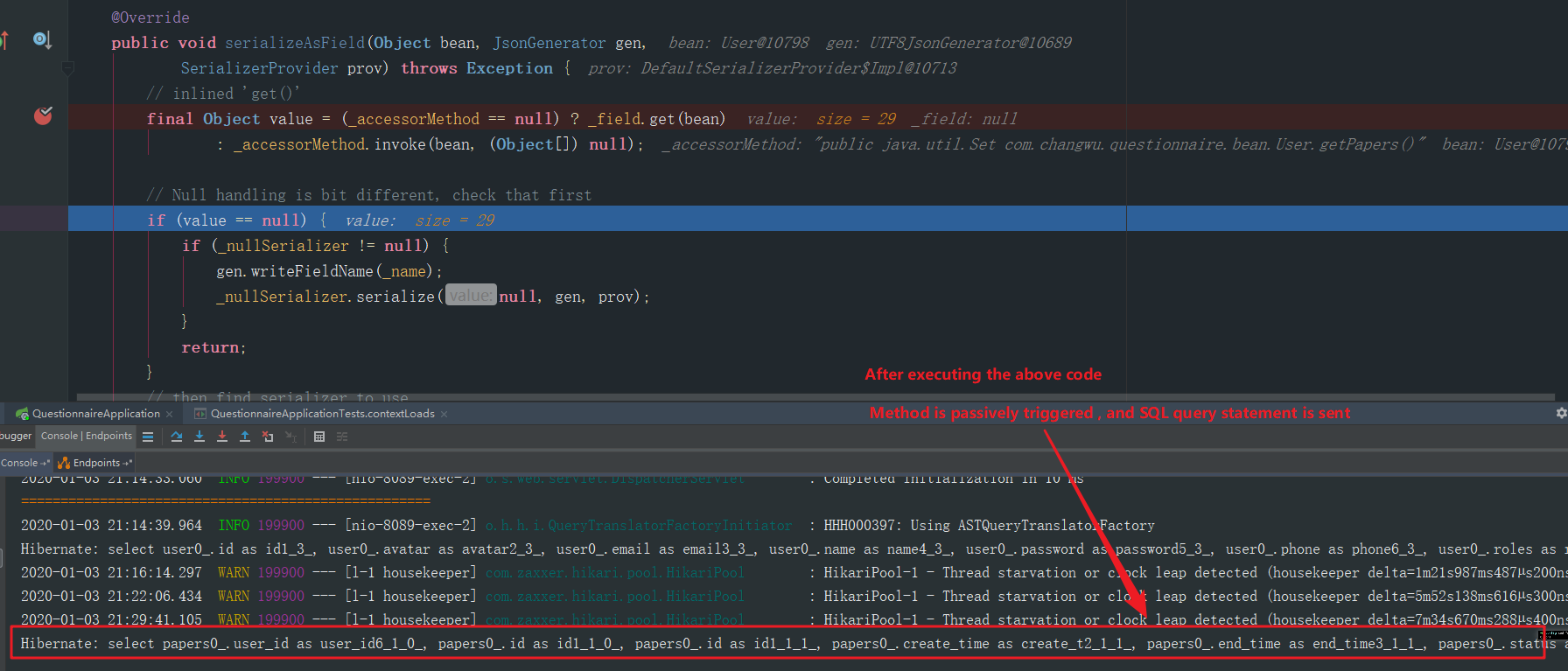
**Lazy loading is in effect, but the cascading query is still triggered passively, which is not the result we want, I wonder what you think about it **
- solution 1:
@RequestMapping(path = "/getUserByPage")
public Page getUserByPage(@RequestParam Integer from, @RequestParam Integer limit, @RequestParam(required = false) String name) {
Page<User> page = userService.getUserByPage(from, limit, name);
page.getContent().forEach(user->{
user.setPapers(null);
});
return page;
}
- solution 2:
@JsonIgnore
**@JsonIgnore can handle this pretty well, so why not let @OneToMany have it? **
@JsonIgnore
@OneToMany(mappedBy = "user", cascade = CascadeType.ALL,fetch = FetchType.LAZY)
private Set<Paper> papers = new HashSet<>();
- solution 3:
We can get rid of the getters (papers), but if we do that, we can't use the property by ourselves
最新文章
- Android 生成LayoutInflater的三种方式
- Win10 UI介绍之Titlebar
- java.lang.instrument使用
- try catch finally return之间的关系
- Python生成8位随机密码
- eclipse 安装scons
- Linux时间函数
- 大象的崛起!Hadoop七年发展风雨录
- HDOJ -- 1015
- sql server 数据库附加时程序集错误
- 基于visual Studio2013解决面试题之0301累加
- Unity依赖注入
- PHP实现开心消消乐的算法示例
- 《通过C#学Proto.Actor模型》之 HelloWorld
- Vue 知识整理—02-起步
- echarts立体效果地图-自定义区域及文字
- vue的 v-for 循环中图片加载路径问题
- iOS:基于RTMP的视频推流
- Java之事务的基本应用
- Java 基础 面向对象和抽象类